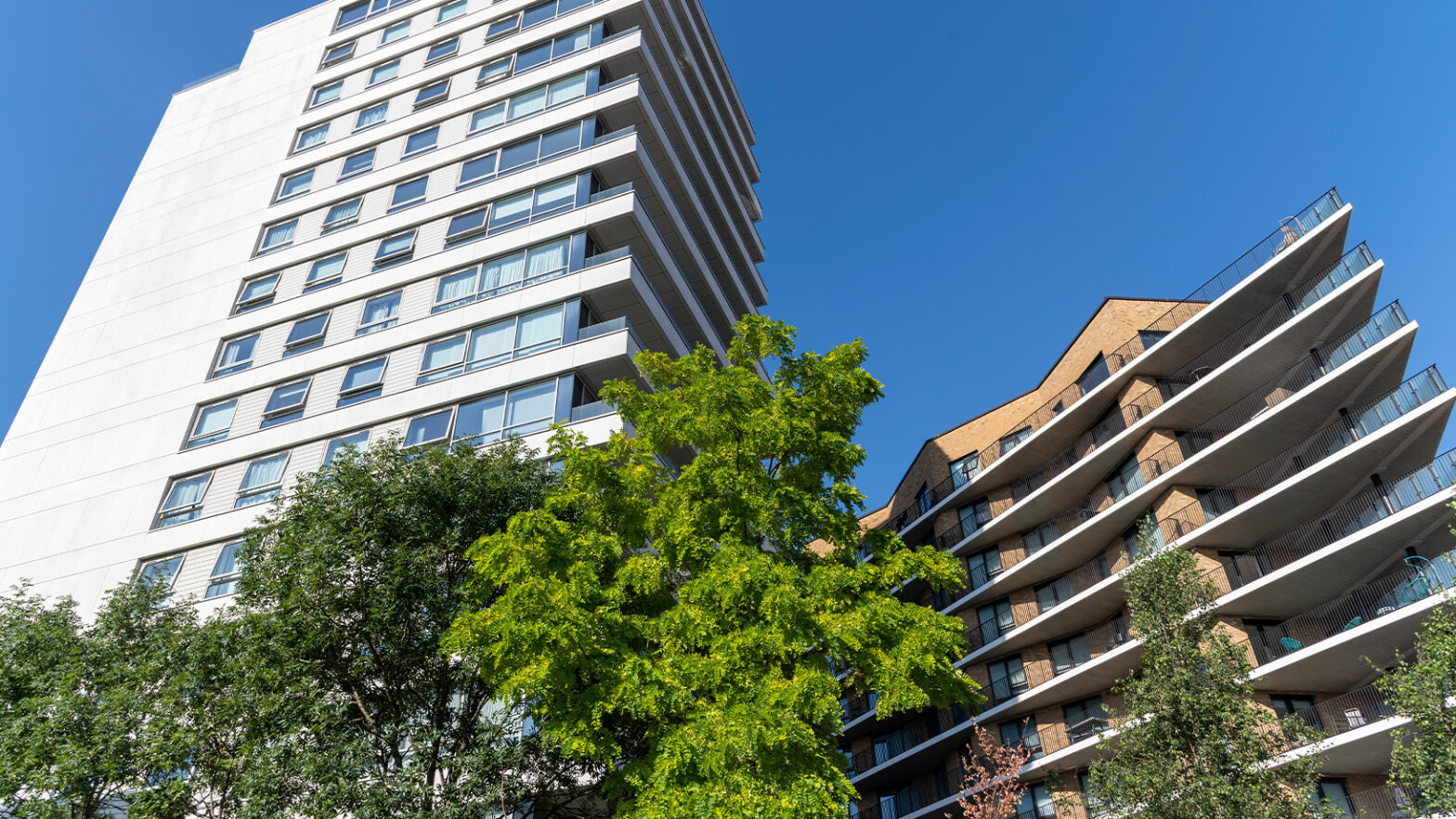
Leasehold and Freehold Reform
This hub has been developed as a comprehensive guide to leasehold and freehold reform, tracking key legislative developments and providing guidance on the impact that those changes have in practice on the real estate market.
The Leasehold and Freehold Reform Act 2024 (LAFRA) received Royal Assent on 24 May 2024.
LAFRA applies to England and Wales and implements commitments in the Conservative government’s 2017 housing white paper to “improve consumer choice and fairness in leasehold.” It takes forward many of the leasehold reform recommendations made by the Law Commission in their report of 2020 and forms the foundation for the most significant reforms to the leasehold system for a generation.
LAFRA is the second part of a legislative package for leasehold reform following on from Leasehold Reform (Ground Rent) Act 2022 which put an end to ground rents for most new, qualifying long residential leasehold properties in England and Wales.
While some provisions of LAFRA came into force in July 2024, the majority are being phased in gradually, with further secondary legislation expected throughout 2025 and 2026. The government have recognised the need to balance “speed with care” to ensure that the measures brought into force are to the lasting benefit of leaseholders and residential freeholders. In addition, it has been recognised that LAFRA contains “a small number of specific but serious flaws which would prevent certain provisions from operating as intended and that need to be rectified via primary legislation”. As a result leasehold reform remains a work in progress.
Following the general election on 4 July 2024, the implementation of LAFRA has progressed, but the full impact remains uncertain. While some key provisions have been introduced, further details including changes to the valuation methodology for enfranchisement claims, are expected to be implemented gradually via secondary legislation.
Key information
The government has published explanatory notes to LAFRA 2024 which provides a helpful overview and explanation of what the legislation means in practice. By way of summary, LAFRA introduces:
- A ban on the sale of new leasehold houses (other than in exceptional circumstances).
- The abolishment of marriage value simplifying leasehold enfranchisement valuations and reducing costs for leaseholders in houses and flats to extend their lease or buy their freehold.
- An increase in the standard lease extension term from 90 to 990 years for both houses and flats, with ground rent reduced to a peppercorn upon payment of a premium.
- The removal of the two-year qualifying period for leasehold enfranchisement and lease extension claims under the Leasehold Reform Act 1967 and Leasehold Reform Housing and Urban Development Act 1993 giving more leaseholders the right to extend their lease, buy their freehold and take over management of their building.
- The lifting of restrictions on repeated collective enfranchisement claims making it easier for leaseholders to purchase their freehold.
- An increase in the non-residential threshold for mixed-use buildings qualifying for enfranchisement or Right to Manage from 25% to 50%.
- Measures to improve the transparency of:
-
- service charges and giving leaseholders a new right to request key financial information and non-financial information on a regular basis about service charges and the management of their building so that leaseholders can scrutinise and better challenge costs if they are considered unreasonable; and
-
- administration charges and buildings insurance commissions.
- The removal of the presumption that leaseholders pay their landlord’s legal costs when challenging poor practice and giving them a new right to apply to claim their legal costs from their landlord.
- Extended access to redress schemes for leaseholders where the freeholder manages the property directly.
- Measures to ensure that relevant property sales information is provided to leaseholders in a timely manner.
- Extended access to redress schemes where the freeholder manages the property directly and requiring freeholders who manage their property to belong to a redress scheme so leaseholders can challenge them if needed.
Part 8 of LAFRA also extends the measures in the BSA to further protect leaseholders and ensure that the BSA operates as intended. For further details please visit The Building Safety Act.
- 3 March 2025: Implementation of the Right to Manage (RTM) provisions including changing the qualifying criteria to give more leaseholders the RTM and removing the requirements for leaseholders to cover the freeholder’s legal fees when making a RTM claim. Read Erin Stephenson’s article Leasehold reform update.
- 31 January 2025: The abolition of the two-year ownership rule before making a statutory lease extension claim. Read Anna Favre’s article Leasehold reform newsflash: The abolition of the two-year rule.
- 24 July 2024: Implementation of certain provisions relating to rent charges, service charge disputes, and the Building Safety Act 2022 (introducing the new concepts of “relevant steps” and “relevant measure” impacting upon applications for Remediation Orders and Remediation Contribution Orders) took effect. Read Laura Southgate’s and Simon Jones’ article What changes will the Leasehold and Freehold Reform Act 2024 introduce to residential service charges?
Given the evolving legal landscape, leaseholders and landlords should be prepared for further changes throughout 2025 and beyond.
The timeline for the full implementation of key provisions, particularly those affecting valuation, remains uncertain. With ongoing regulatory updates, both leaseholders and landlords should stay informed and seek professional advice where needed.
The government published the Commonhold White Paper: The proposed new commonhold model for homeownership in England and Wales – GOV.UK on 3 March 2025 accompanied by a press release confirming the intention to bring the “feudal leasehold system to an end” and make commonhold the default tenure by the end of this Parliament. The White Paper sets out the government’s proposal for how the reformed commonhold model will operate.
We expect the Leasehold and Commonhold Reform Bill to be published towards the end of this year setting out the legal framework to implement the proposed changes. You can read more here Commonhold: A new era for homeownership?
How our lawyers can help
Our lawyers provide personalised advice, ensuring you fully understand how LAFRA’s provisions apply to specific circumstances. If you are considering extending your lease or purchasing your freehold, we can guide you through the process under the new legislative framework, helping you make informed decisions at every stage. For those facing disputes over service charges, insurance fees, or other leasehold matters, our team offers expert representation to resolve conflicts efficiently and protect your interests. We act for landlords, leaseholders, and investors advising on all aspects of freehold, leasehold and commonhold ownership and associated management matters.
If you have any questions about the new legislation or need assistance with leasehold matters, contact our expert leasehold enfranchisement team to discuss how we can support you.
Key contacts
Legislation
| Legislation | Made |
|---|---|
| The Leasehold and Freehold Reform Act 2024 (Commencement No. 3) Regulations 2025 | 6 February 2025 |
| The Leasehold and Freehold Reform Act 2024 (Commencement No. 2 and Transitional Provision) Regulations 2025 | 22 January 2025 |
| The Leasehold and Freehold Reform Act 2024 (Commencement No. 1) Regulations 2024 | 7 October 2024 |
| Leasehold and Freehold Reform Act 2024 | 24 May 2024 |
| Leasehold Reform (Ground Rent) Act 2022 | 8 February 2022 |
Consultations
Permitted insurance fees for landlords, freeholders and property managing agents – GOV.UK (closed 24 February 2025)


























